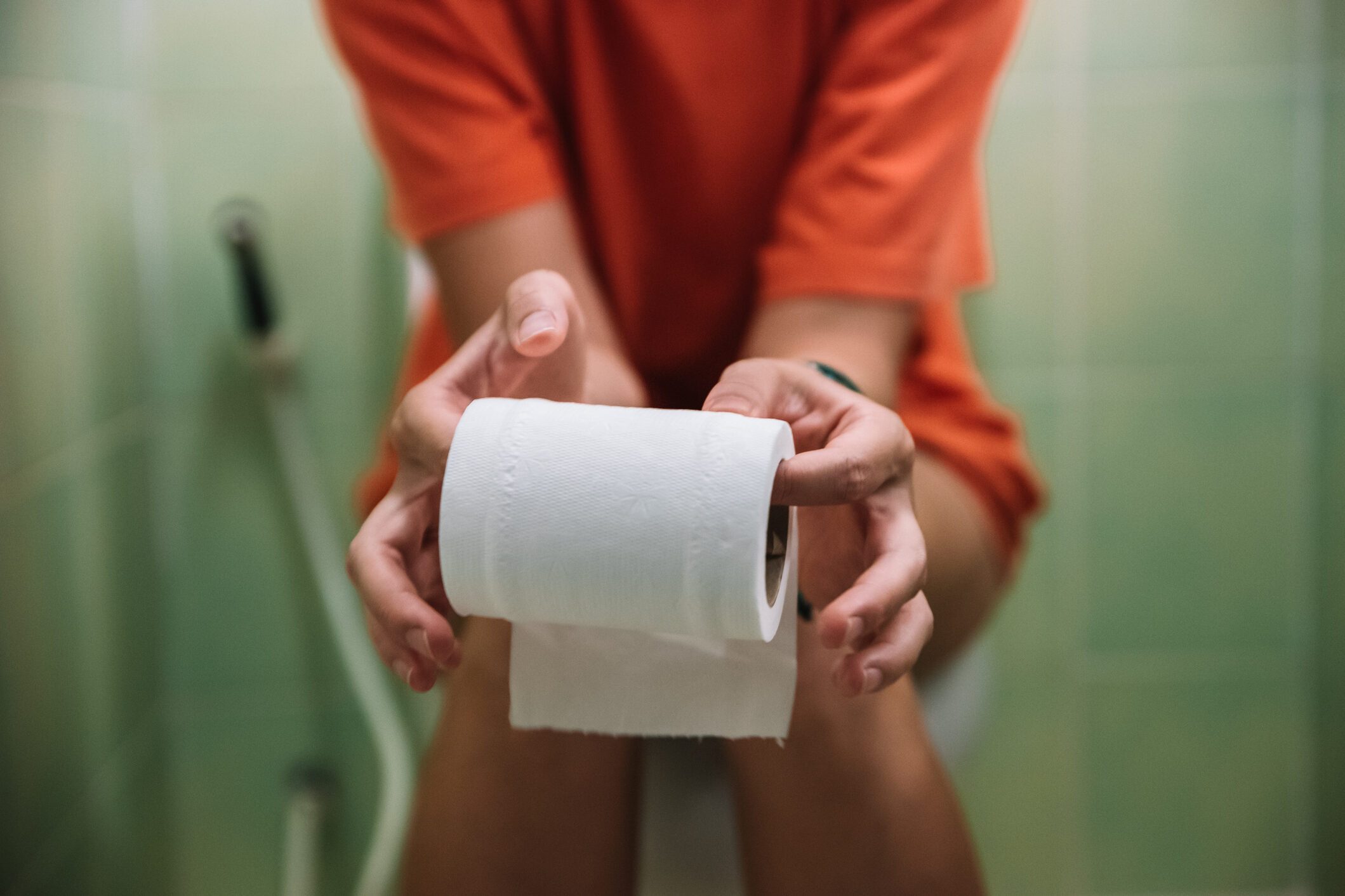A healthy bowel movement has a way of lightening the mood—and a new study by medical researchers in China says the scientific impact is real.

New Study Says Pooping This Often May Lower Your Risk of Brain Disorder

When you feel a strong sense of clarity, it’s common to describe it as something you feel in your gut. In recent years, rigorous scientific investigations have demonstrated that this is far more than just a colloquial turn of phrase. Now a new study led by medical researchers specializing in integrative health goes even farther to connect your gut health with your mental health in more literal terms.
The new research suggests that experiencing suboptimal bowel health is associated with one mental health condition in particular. The findings of a recent study suggest that having a bowel disorder could be linked with depression, a widespread mental health condition affecting an estimated 280 million people around the world, according to the World Health Organization (WHO).
Led by researchers at a medical university in China and published this September in the journal Frontiers in Psychiatry, the study used data from the National Health and Nutrition Examination Survey (NHANES) to find associations between gut health and depression. Looking at the bowel health and mental health of 13,820 participants, they found that various bowel issues, including constipation, diarrhea, and fecal incontinence, go hand-in-hand with higher rates of depressive symptoms.
“Evidence showed that the risk of constipation in depressed people was 1.69 to 3.76 times that of non-depressed people,” the study states. “Diarrhea, the eighth leading cause of death among all ages, was found to be commonly comorbid [co-existing] with depressive symptoms.”
The researchers continue: “As for fecal incontinence, which has a worldwide prevalence of 7% … [this] can markedly impair quality of life. Moreover, the severe symptoms of depression were thought to be an identified risk factor of fecal incontinence.”
They added that individuals who experienced six bowel movements per week showed the lowest risk of depression.
Another 2024 study published in The Lancet zeroed in on the relationship between constipation and depression, and sought to determine the nature of the relationship between the two. “Constipation is generally considered a common physical symptom of depression or a side effect of antidepressant treatments,” the researchers wrote. “However, according to the gut-brain axis hypothesis, the association between depression and constipation might be bi-directional.”
Those researchers added that both doctor-diagnosed and self-reported constipation are both associated with an elevated risk of depression. “These explorative findings suggest that constipation may be an independent risk factor or a prodromal symptom of depression,” the researchers wrote. A “prodromal symptom” refers to an early diagnostic sign or symptom that can indicate the onset of a disease before other identifying symptoms develop.
The Frontiers study acknowledges that more research is needed to understand the mechanisms behind the association between bowel disorders and depression. “However, the brain-gut axis may be involved in the association of diarrhea and constipation with depressive symptoms. Serotonin (5-HT) is an important modulator of microbiota-gut-brain axis.” They reference a previous study that “found significant differences in gut microbiota between depressed patients and healthy controls.”
In this promising piece of research, the scientists transplanted fecal microbiota from healthy participants into depressed mice, and effectively alleviated their depressive symptoms by increasing serotonin levels in the brains and colons of the mice. This suggests that treating bowel disorders and improving gut health may also have a positive impact on depressive symptoms, the researchers say.
Even with its limitations, this research may offer some comfort and understanding to patients experiencing the seemingly unrelated problems of poor bowel health and depressive symptoms. Speaking with a gastroenterologist or your primary care physician about not only your gut health, but also your mental health, could help lead to a more comprehensive treatment plan that addresses both ailments—and makes you feel less alone in your health journey.
For daily wellness updates, subscribe to The Healthy by Reader’s Digest newsletter and follow The Healthy on Facebook and Instagram. Keep reading:
- Here’s How Much Fiber You Really Need in a Day
- 5 Drinks That Make You Poop Immediately, From a Gastroenterologist
- What Is “Stress Poop”? Gastro Doctors Reveals the Science Behind This Extremely Normal Experience
- This Old-School Constipation Fix Is Still #1, Fascinating New Science Confirms
- 8 Signs You Have a Healthy Gut, According to a Gastroenterologist




















